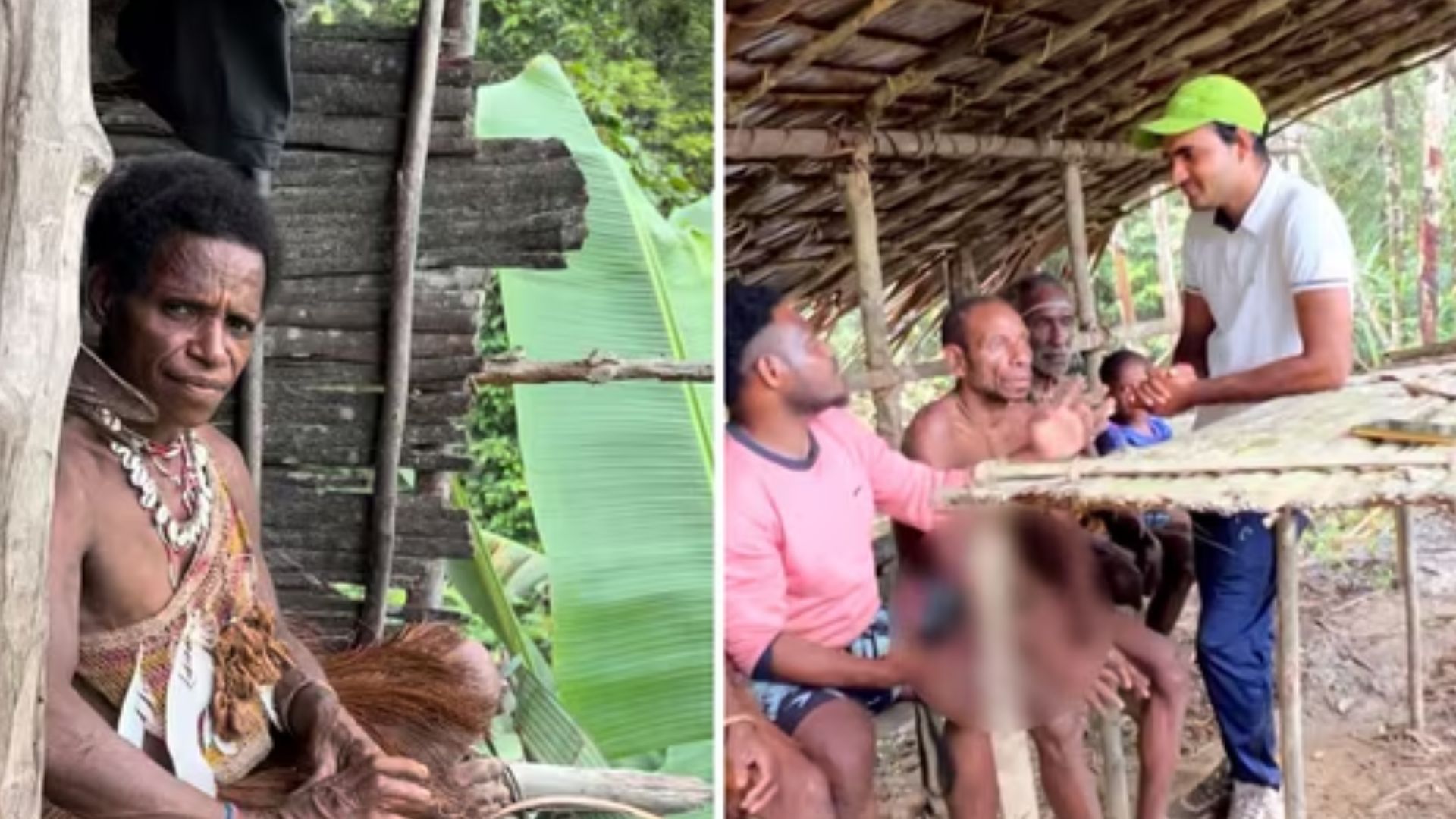An Indian travel vlogger, Dheeraj Meena, recently embarked on a journey deep into the jungles of Indonesia to meet the Korowai tribe, often sensationally referred to as a “human-eating” tribe. He documented this rare encounter with the isolated tribe, who have lived away from the modern world for centuries, primarily surviving through hunting, gathering, and fishing.
The Korowai Tribe and Cannibalism
The Korowai people, native to the Papua province of Indonesia, have garnered attention in modern media due to their historical association with cannibalism—the practice of eating human flesh. While it is believed that the tribe once practiced cannibalism as part of their spiritual and social beliefs, this practice has mostly died out over time.
Journey into the Jungle
Meena described the challenging journey he undertook to meet the Korowai. After taking a flight, he endured a 10-hour boat ride, followed by a 4-hour trek through dense forests to reach the tribe. “The Korowai live in extremely remote areas, maintaining a traditional lifestyle that includes hunting for survival. In accordance with their customs, they don’t wear clothes, and men and women live in separate houses,” Meena shared on Instagram. He also mentioned that the tribe resides in tree houses elevated high above the ground.
Questioning the Cannibalism Myth
During his interactions, Meena asked the Korowai about their controversial history. “We heard that Korowai people eat humans. Is that true? Do you eat humans?” he asked a member of the tribe.
The Korowai man explained that the practice of eating human flesh was followed by earlier generations, as recently as 16 years ago. However, he confirmed that cannibalism is no longer part of their culture. He further elaborated that in the past, when different groups within the Korowai fought, they sometimes killed and ate their rivals, especially during tribal conflicts.
“Known in the past for their practice of cannibalism, especially during tribal conflicts, the Korowai would sometimes kill rivals who captured their women, a practice that has mostly faded now,” Meena shared on Instagram.
Despite their fierce history, Meena found the Korowai people to be warm and welcoming, spending several days learning about their daily life and customs.
The Taste of Human Flesh
Meena also posed a controversial question to the tribe: “What does human flesh taste like?”
Although the taste of human flesh is not widely documented due to ethical and legal reasons, the Korowai man replied that his father had eaten humans, but the tribe no longer follows the practice. Meena noted on Instagram, “In rare accounts from anthropologists and historical sources, human meat has been described as somewhat similar to pork or veal, with a texture like beef.”
Cannibalism as a Myth for Tourists
While the Korowai were once known for ritual cannibalism, anthropologists believe that the practice largely ended by the 21st century as the tribe came into increased contact with the outside world. More recent research suggests that some members of the Korowai claim to still eat human flesh to maintain the myth for tourists, as many visitors are drawn to the tribe due to this association.
“Most of these groups have 10 years’ experience in feeding this [cannibal] stuff to tourists,” said Chris Ballard, an anthropologist from the Australian National University, in an interview with the Sydney Morning Herald in 2006.
The Korowai tribe remains a point of fascination for those intrigued by their history, but their reality today is shaped more by tradition and survival than by the practices that once defined them in the eyes of outsiders.







